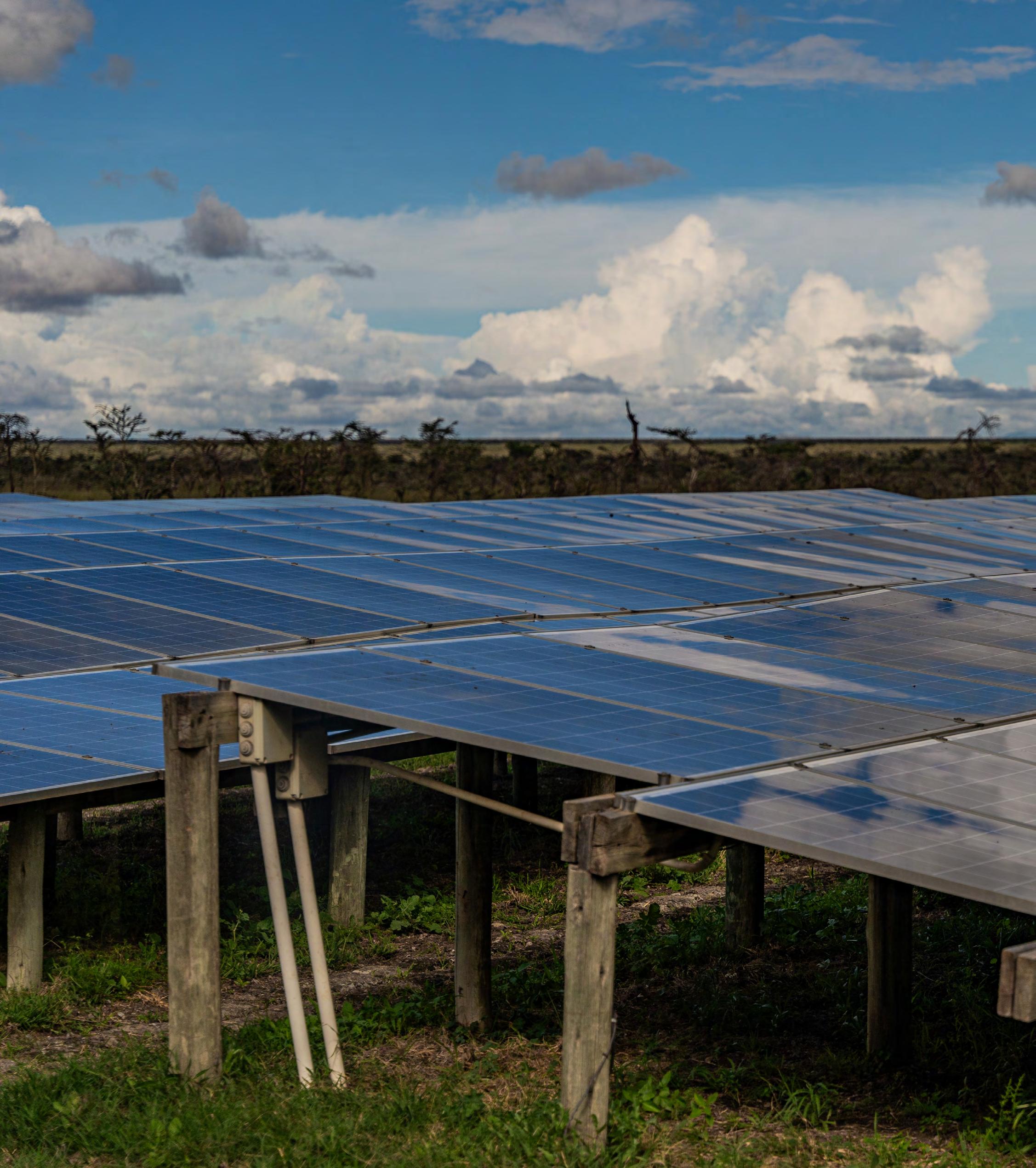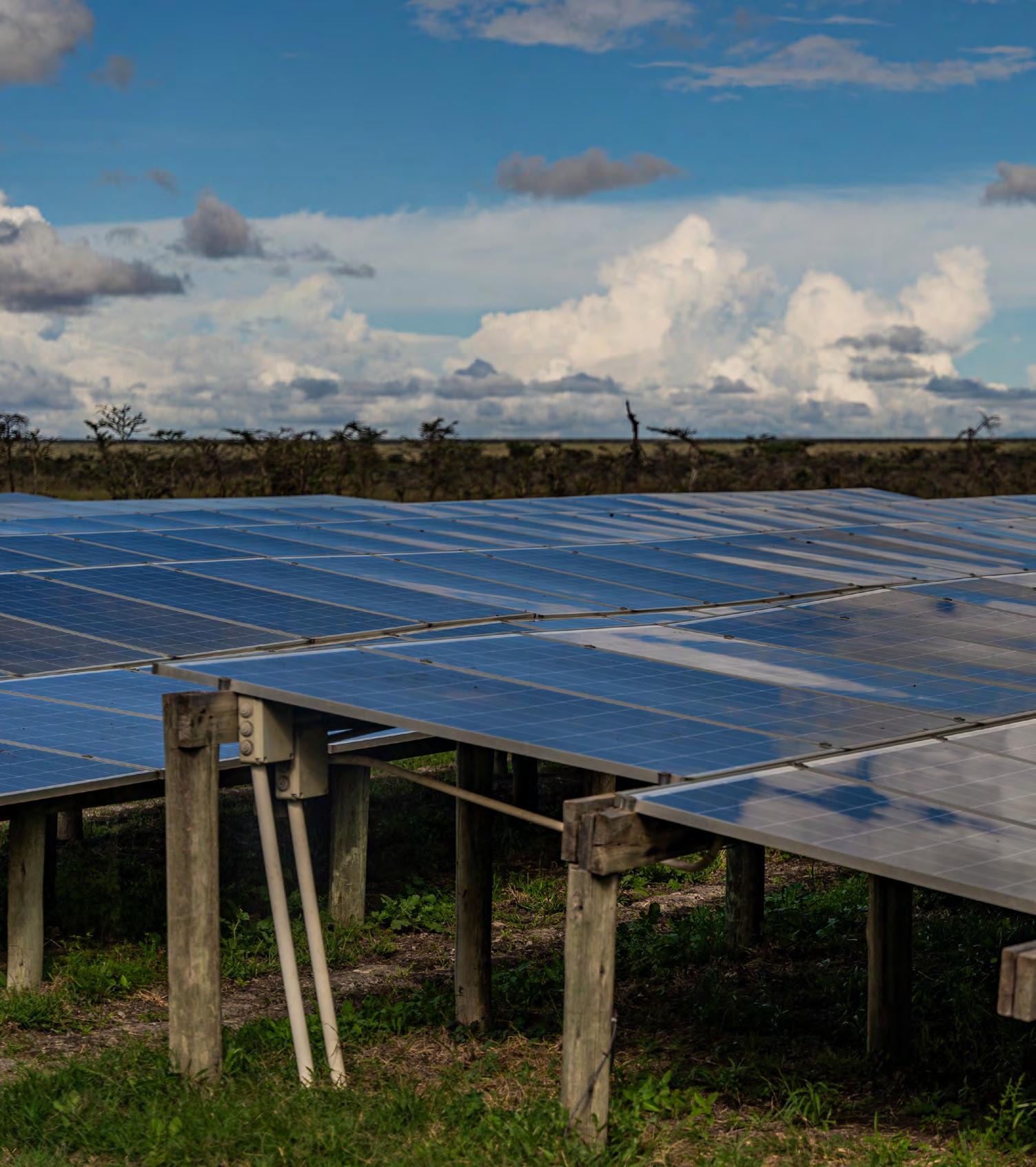
4 minute read
Treading lighter and Sustainably
As a Global Ecosphere Retreats® (GER) member of The Long Run, Segera is committed to ensuring every aspect of the conservancy has a light footprint, which strengthens its mission to achieve long-lasting impact and sustainability
As our planet is degrading due to pollution and global warming, there has never been a more urgent need to revive damaged ecosystems than now. At Segera, its dedicated mission revolves around sustainable living and a harmonious relationship with nature. This commitment is evident in sustainable building practices, solar installations, rain-catchment systems, and responsible management of water resources. Additionally, proper treatment and reuse of grey water are prioritised, alongside sustainable collection and disposal methods for solid waste.
With International tourism heading back to pre-pandemic levels, and double the number of people travelling so far in 2023 than in the same period last year, the industry is still at risk of being a big contributor to the global plastic pollution crisis. One important way to curb this is phasing out single-use plastics. Guests are provided with bath amenities in refillable pumps, takeaway meals are packaged in boxes or biodegradable paper, as well as onsite purification of drinking water which is served in reusable glass bottles.
Energy, being at the heart of the climate challenge, is also key to the solution. Transition to cleaner and renewable forms of energy such as solar is critical to protecting humans, wildlife, and ecosystems. The rooms are not only luxuriously cozy, but also eco-friendly thanks to solar energy. Segera takes great pride in creating the perfect blend of luxury and eco-consciousness to guarantee minimal environmental impact.
Minimisation of waste as well as remanufacturing and recycling waste into usable products is a critical contribution humanity can make to reduce its impact on the natural world. The lifecycle of waste- generation, collection, and disposal- is informed by their mission to create a sustainable, ecologically and socially responsible retreat. Having properly labeled waste bins at collection stations around the retreat is the first step toward sorting solid waste.
Every morning, bins are emptied and cleaned before transferring the waste into a central collection station within the conservancy. Organic waste is composted in on-site gardens while the rest- paper, plastic, metal, and PPE is later transferred to a community enterprise that empowers waste picker livelihoods through the collection, sorting, and recycling of generated waste.
Segera partners with Chumeplasoles, a waste collection and sorting station located in Nanyuki’s Majengo slum area. Founded 8 years ago by George Mwangi, the establishment has truly transformed the face of Majengo slums which was previously dotted with trash and heaped chunks of waste. George and his team, who are spread out across Nanyuki, collect recyclable waste such as paper, cartons, metal, plastic, bottles, glass, and even bones. The team also incinerates PPE and other bio-hazardous waste that comes to them.
Many other private firms as well as the county government bring their recyclable waste here, which Chumeplasoles sells to notable recycling companies around Kenya. George also works closely with homeless youth and other disadvantaged groups who act as waste pickers to earn a livelihood. Every month, the team at Chumeplasoles participates in an act of charity and has been monumental in supporting street families and children’s homes around Nanyuki.
The consequences of doing little or even nothing to address waste management can be very costly to our eco-sphere. By reducing waste, avoiding irresponsible waste-discarding methods as well as recycling waste into usable products, we are a step further into expanding the positive impacts on the health of the planet and the well-being of people.
Rethinking habits is not a matter of change at one hotel or even in one industry. Instead, it requires the support of every stakeholder, from governments, policymakers, business owners and consumers. This contributes to a healthy, liveable planet today and for generations to come.











